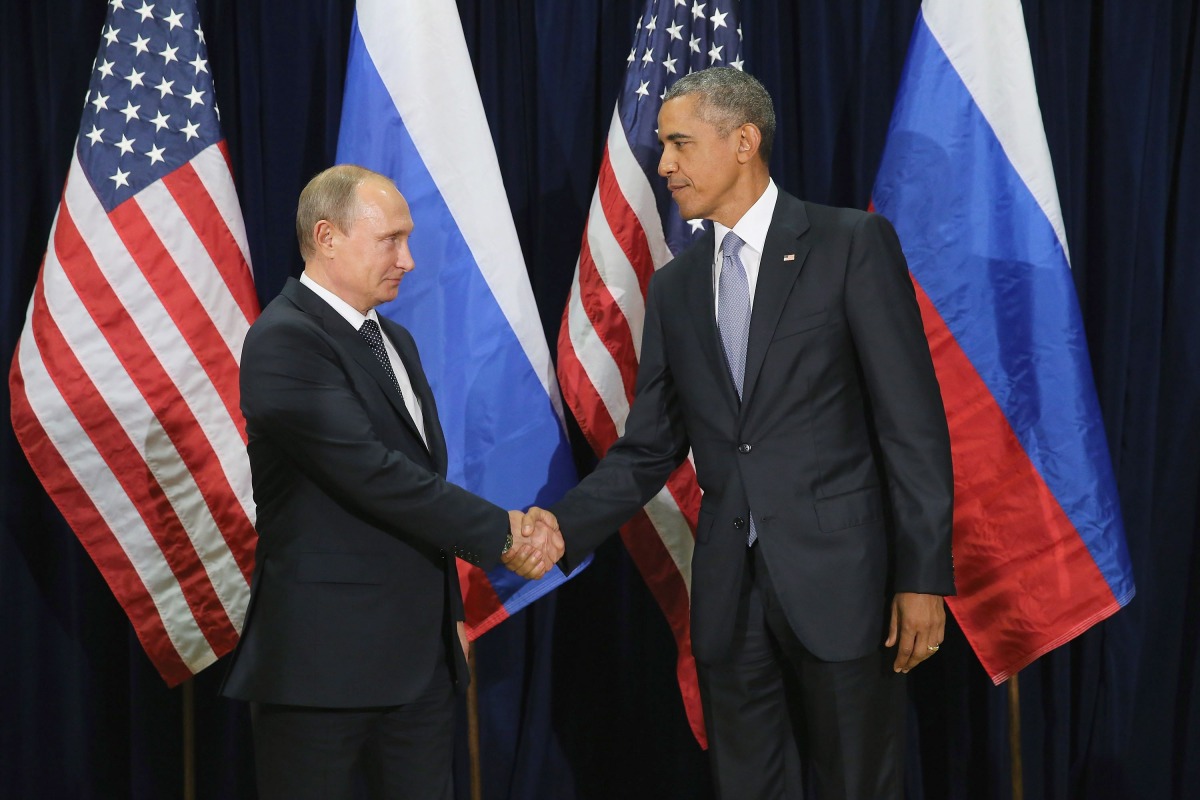
The Americans tested our patience, they burdened us and burdened us, and we essentially didn’t respond. The countersanctions we applied early on primarily targeted our partners in the European Union and didn’t affect them at all. And when the Americans introduced sanctions against us, they left the aerospace sector alone because cooperating with us in it is profitable for them. Such is, you know, their cynical approach.
So don’t think that by deciding to suspend the Russia-U.S. Plutonium Management and Disposition Agreement, and after that the Russian-U.S. Agreement on Cooperation in Nuclear- and Energy-Related Scientific Research and Development, now Russia is fomenting something. No, we’re simply equalizing the balance in our relations, which we’re not, by the way, giving up on. If, following the U.S. presidential election, the new administration changes its attitude toward Russia, then we’ll also make adjustments.
I don’t think the U.S. will take retaliatory measures, cutting Russia off from the SWIFT system, for example, like some experts believe.* First of all, it’s an international system, not an American one. Second, its cutoff would hardly be beneficial to the West. For example, Europe pays Russia back for gas. What would it do afterward, transport cash in railcars or bars of gold on airplanes? The trade turnover between the EU and Russia is somewhere in the neighborhood of 800 million euros per day (approximately $88.8 million). It mainly consists of our supplies of raw materials and energy resources. It’s sad, of course, but these are goods without which their industrial production would simply stop. And what do you think, will we supply them with anything if they stop paying us?
They would have cut us off from SWIFT and other systems long ago if not for these fears. It’s precisely why, when imposing sanctions, the West chose sectors in which it wouldn’t come to serious harm. Russia, which has a third of the globe’s natural resources, powerful missile capabilities, and advanced technologies, is not a country with which to play these games. We’re not North Korea or Zimbabwe.
In my opinion, the Americans simply still don’t understand that the world has already changed. There’s China, there’s India, and there are even European countries that aren’t about to live in the United States’ unipolar reality. At present, the U.S., drawing up its foreign policy, understands only one thing: they see a wall in front of them that can’t be broken, and they stop. For the U.S., the decision of the United Nations Security Council—which it didn’t ask before carrying out its military operation in Iraq or bombing Yugoslavia—doesn’t constitute such a wall. For this very reason, many of the world’s nations want to acquire the nuclear bomb. They see that the U.S. is absolutely incapable of negotiating.
Now, it seems to me, our cup of patience overflows with the statement about drafting new anti-Russian sanctions over Syria. Through his actions, the U.S. president, Nobel Peace Prize winner Barack Obama, is setting back the history of Russian-American relations by decades. Of course, there’s the viewpoint, even among American experts, that it isn’t even being done by him. But in that case, one may say that the brighter the blaze, the more profitable it is for those who sell fire extinguishers and those who fill up the fire trucks with gas. I’m talking about the multi-billion-dollar business deals on which the Americans live.
But on the other hand, for that very reason, if they’re debating some new steps with regard to Russia, they’re thinking about their losses too. The Americans are rational. They can take these retaliatory steps up to a certain level, so long as it doesn’t hurt their interests. And at that point a different logic takes over. Following Russia’s decision to suspend the above-mentioned agreements, the Americans have already wound up the losers, and I’m not sure they want to lose for long. That is, now they’ve begun to pay for their policy.
One may assume this will do serious damage to Russia and the U.S., but after all, there are other countries like China that will be able to fill the vacuum quickly and wrest from the U.S. its leading position in a whole array of industries. If the Americans have enough sense to take all of this into account, they might hit the brakes with respect to pressuring Russia and once again return to cooperation.
*Editor’s note: SWIFT is the acronym for the Society for Worldwide Interbank Financial Telecommunication, which provides a network that enables financial institutions worldwide to send and receive information about financial transactions in a standardized, reliable and secure environment.

Leave a Reply
You must be logged in to post a comment.